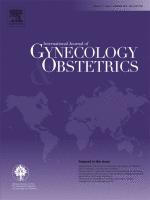Posted on November 01, 2015
Source: International Journal of Gynecology & Obstetrics

Caitlin E. Martin, Andrea L. Wirtz, Vladimir Mogilniy, Alena Peryshkina, Chris Beyrer, and Michele R. Decker
Objective
To determine the prevalence of, and factors associated with, use of non-barrier contraception (intrauterine device, hormonal contraceptives, and female sterilization) among female sex workers (FSWs) in three Russian cities.
Methods
A secondary analysis of data from a cross-sectional survey of FSWs aged 18 years and older from Kazan, Krasnoyarsk, and Tomsk was undertaken. Participants had completed a one-time computer-based survey in 2011. Among the 708 with a current contraceptive need, logistic regression was used to evaluate factors associated with use of non-barrier contraceptives.
Results
Use of non-barrier contraceptives was reported by 237 (33.5%) FSWs. Use of non-barrier contraceptives was associated with being in sex work longer (≥ 4 years vs < 1 year: adjusted odds ratio [AOR] 4.70; 95% confidence interval [CI] 1.51–14.66) and having a non-paying partner (AOR 2.02; 95% CI 1.32–3.11). Odds of non-barrier contraception were reduced among FSWs who had ever worked with a pimp/momka (AOR 0.46; 95% CI 0.24–0.87), who had experienced recent client-perpetrated violence (AOR 0.19; 95% CI 0.07–0.52), or reporting consistent condom use (AOR 0.30; 95% CI 0.16–0.54). Only 13 (5.5%) of the 237 FSWs using non-barrier contraception reported consistent condom use.
Conclusion
Only one-third reported use of non-barrier contraception, suggesting substantial unmet contraceptive needs. FSWs are an important target population for family planning, reproductive health counseling, and care.